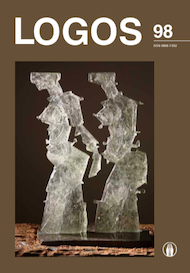KULTŪROS SĄVOKOS RAIŠKA DAUKANTO DARBUOSE
EXPRESSION OF THE CONCEPT OF CULTURE ON DAUKANTAS WORKS
Author(s): Roma BončkutëSubject(s): Cultural history, Lithuanian Literature, Polish Literature, 19th Century, Translation Studies, Theory of Literature
Published by: Visuomeninė organizacija »LOGOS«
Keywords: Daukantas; Herder; Kosellek; vigilance; concept of culture; language; nation; history;
Summary/Abstract: This article investigates how the emerging term of “culture” was conceptualized in the works of the famous Lithuanian historian Simonas Daukantas (1793–1864). He was the first Lithuanian nineteenth-century historian who wrote in his mother tongue. Although Daukantas was the follower of Johann Gottfried Herder (1744–1803), who was the first to establish “cultura” as a term (die Kultur), Daukantas did not use the term “cultura” to signify the concept of culture as it is known today. The article shows that in his Polish texts Daukantas uses the term “civilization” in place of “culture” and this word is found in his dictionary Didysis lenkų–lietuvių kalbų žodynas (The Great Polish-Lithuanian Dictionary ~ 1850–1856). In Dictionary he translated the term “civilization” from Polish to Lithuanian using the word vigilance (“akylumas”): “Cywilizacya” became “akylumas”, the verb cultivate: “Cywilizować” became “akylinti” and the adjective vigilant: „Cywilizowany” – “akylas”. Using Reinhart Kosellek’s theory on the history of concepts, this article discusses why Daukantas chose the word vigilance („akylumas”) in place of the concept of culture.
Journal: LOGOS - A Journal of Religion, Philosophy, Comparative Cultural Studies and Art
- Issue Year: 2019
- Issue No: 98
- Page Range: 174-180
- Page Count: 7
- Language: Lithuanian

